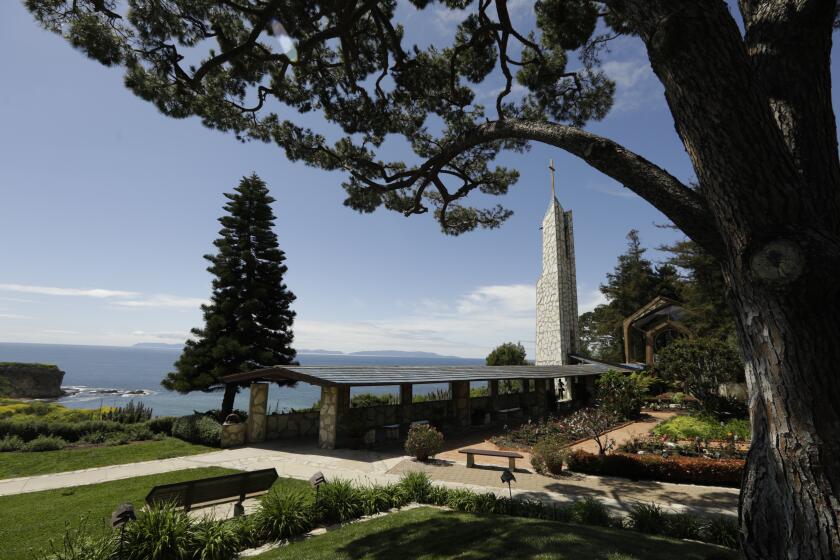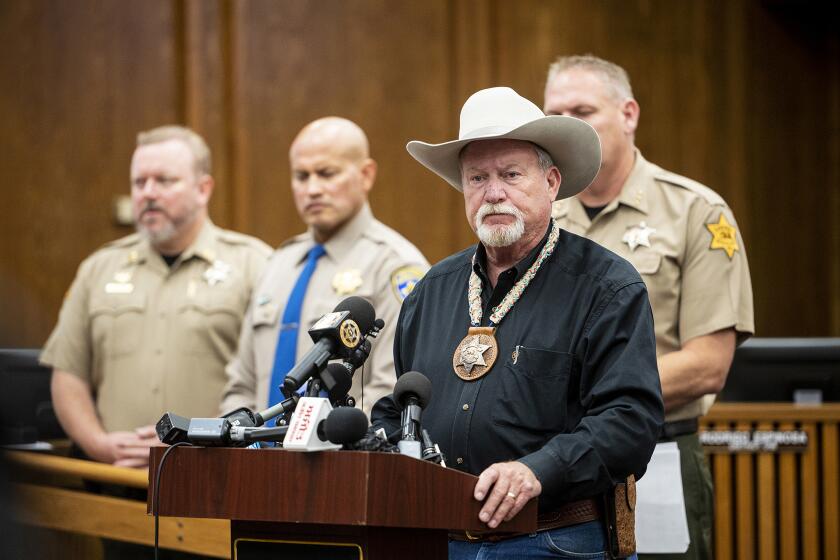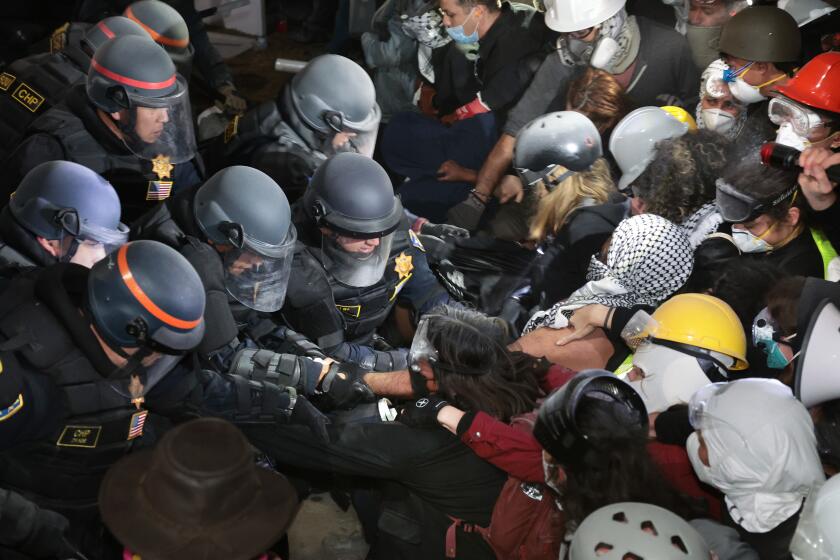Borrowing costs for bullet train revised upward
California’s distressed state budget will have to allot more than $700 million each year to repay billions of dollars that officials plan to borrow to build the first phase of a proposed bullet train, a nonpartisan government research office has found.
The repayment projection by the state legislative analyst’s office includes principal and interest on $9.95 billion in high-speed rail bonds approved by voters in 2008. The figure is higher than in the past — partly because of higher borrowing rates — and does not count millions of dollars already being paid annually on about $500 million in debt incurred to plan the system.
The new estimate is part of an analysis of a proposed statewide vote on the controversial $98.5-billion fast-train link between Los Angeles and the Bay Area. The bullet train’s impact on the cash-strapped state general fund budget, which funds schools and other basic services, could be a major point of contention in the Legislature this year.
The California High Speed Rail Authority wants to use $2.7 billion of the bond money and $3.3 billion in federal grants to build a 130-mile section of track in the Central Valley. The entire first phase of the system between San Francisco and Anaheim will cost an estimated $98.5 billion. The cost of the full system, extending to San Diego and Sacramento, has not been calculated.
With the state short about $86 billion to finish the initial phase, the project has faced increasingly tough questions in Sacramento, even while Gov. Jerry Brown has reiterated his support.
“What about the economic benefits of the investment?” asked rail authority spokesman Lance Simmens. “Investments mean you have to spend some money, but you think you can get more back.”
State Sen. Doug LaMalfa (R-Richvale) has joined forces with former Central Valley congressman George Radanovich to seek a new public vote on the project. The California secretary of state’s office has yet to approve their petition for signature gathering. LaMalfa also has introduced a separate bill in the Senate to stop the project.
“The amount of bond debt service for this rail would more than offset the cuts to the University of California, California State University or Medi-Cal,” LaMalfa said. “Look at all the things that are important to this state. People want a new vote.”
A separate effort to put the bullet train back on the ballot, filed by Peter Seidel of Beverly Hills, was approved by the secretary of state in January. That measure is called the “No Train Please Act.” Seidel could not be reached for comment.
“We really don’t know who he is,” said Jim Earp, a Sacramento-based labor leader who backed the bond measure in 2008 and sits on the California Transportation Commission. “I am not losing a lot of sleep over that one.”
The initiatives need more than 807,000 valid signatures by June 21 to qualify the measures for the November ballot. Support for the project has eroded as questions about the rising cost and uncertain future financing have grown.
A recent Field Poll found that two-thirds of likely voters in the state want another chance to vote on the project and 59% would reject it because of the price tag. The results are similar to those of a public opinion survey done earlier this year by Probolsky Research of Newport Beach, which found that 62.4% of likely voters would reject the project if given the chance.
The 2008 ballot measure said borrowing $9.95 billion would cost the state $647 million annually. Now, the payments could reach $750 million annually, said analyst Brian Weatherford.
That would equal about a 9% increase to the state’s current $8.5-billion annual bond debt service. State Treasurer Bill Lockyer believes there are “substantial unanswered questions about the project’s funding, and until those questions are adequately answered, it’s premature to take the plunge” of moving forward, a spokesman said.
Killing the project now could save the state $709 million annually if additional bond sales are stopped, the legislative analyst said in a letter to the state attorney general last week.
More to Read
Start your day right
Sign up for Essential California for news, features and recommendations from the L.A. Times and beyond in your inbox six days a week.
You may occasionally receive promotional content from the Los Angeles Times.








